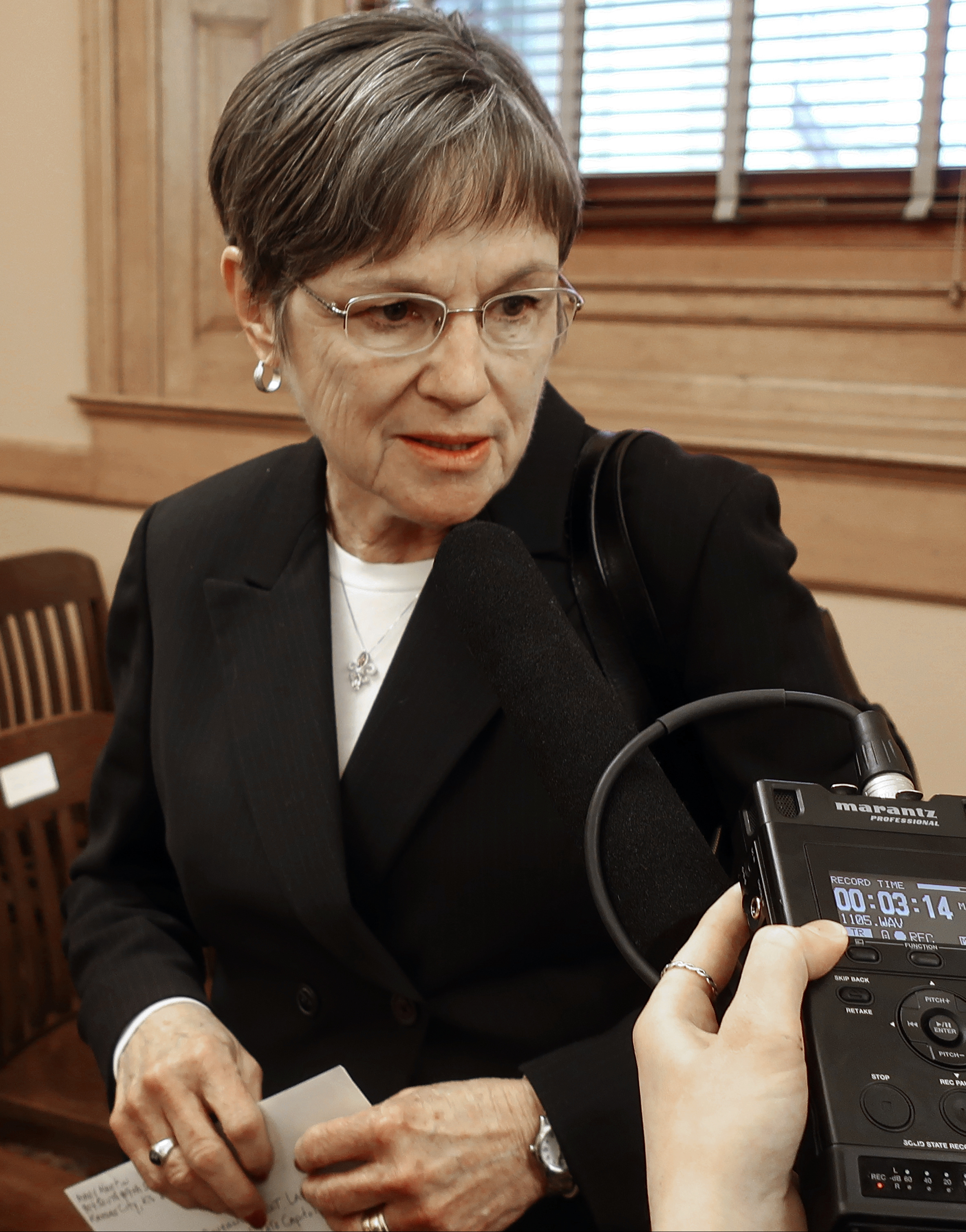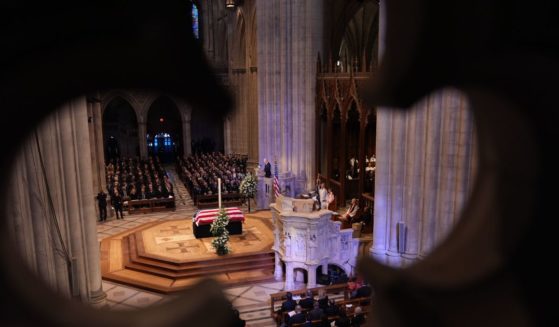
Kansas faces new fight over taxes after years of turmoil
TOPEKA, Kan. (AP) — Kansas’ new Democratic governor promised not to raise taxes to meet her goals of boosting spending on public schools and social services. Republicans who control the Legislature argue that a tax increase is coming even if state politicians do nothing.
One of the first big political fights Gov.-elect Laura Kelly faces upon taking office in January will be over cutting income taxes. The state is receiving a revenue windfall thanks to changes in the federal tax code at the end of 2017.
Kansas has been roiled by a debate over tax cuts for most of this decade, since a previous Republican experiment in slashing income taxes went awry and most voters came to view it as a failure. Lawmakers rolled back most of the experiment, and Kelly built her campaign on a pledge that Kansas wouldn’t repeat it.
Now, according to a spokeswoman, Kelly wants to “let the dust settle” and stabilize the budget before considering new tax changes. But there will be no hiatus: Top Republicans are saying that an early priority for them is rewriting income tax laws to cancel out the unintended revenue increase from the federal tax changes.
“I’ve been working on it the past few weeks,” said state Sen. Caryn Tyson, a GOP conservative and chairwoman of the Senate tax committee. “We should take a vote as legislators to say, do we want to stop that increase? Which I absolutely do.”
Policies championed by President Donald Trump and Republicans in Congress slashed federal income taxes but included provisions that will have some people paying more to their home states. The federal standard deduction increased — further limiting who can itemize — and it triggered a change in Kansas because its tax code is tied to federal law.
The federal overhaul is expected to raise revenue in some states and lower it in others. Officials in Georgia, Idaho, Iowa, Missouri and Utah cited new revenues in justifying state tax cuts adopted this year. In each, Republicans control the governor’s office and legislature.
Kansas officials have struggled to calculate the size of the boon. One early estimate put the gain at $138 million for the state’s current budget year. By last month, they had whittled the figure to $84 million.
That uncertainty hurt efforts by Republicans to rewrite Kansas tax laws earlier this year. They passed a bill in the Senate, only to see it fall a few votes short in the House.
A bill has a better chance of passing in 2019. While voters statewide chose Democrat Kelly, a veteran state senator from Topeka, as the next governor, local contests left the Legislature more conservative.
“A lot of Republicans ran on giving that money back to the taxpayers,” said state House Speaker Ron Ryckman Jr., a Kansas City-area conservative.
But Kelly plans to increase spending — for public schools alone, possibly $90 million a year — which could require the state to keep that tax revenue.
“Kansas still faces massive financial challenges,” said Kelly’s spokeswoman Ashley All. “After years of self-inflicted budget crises, we need to be more cautious and fiscally responsible.”
Kansas was ground zero for a national debate over trickle-down economics after then-Republican Gov. Sam Brownback successfully pushed GOP legislators to slash income taxes in 2012 and 2013 in hopes of stimulating the economy. Persistent budget shortfalls arose, and Kansas became a cautionary tale, even for Republicans elsewhere who favored tax cuts.
Voters turned on Brownback’s legislative allies, and bipartisan majorities in 2017 reversed most of his tax policies , raising income taxes $600 million a year.
In the November election, voters had an overwhelmingly negative view of Brownback’s tax experiment: 77 percent said his tax policies were bad for Kansas, according to AP VoteCast, a survey of more than 115,000 midterm voters nationwide, including nearly 4,000 in Kansas. The margin of sampling error among Kansas voters was plus or minus 2 percentage points.
Kansas voters had a more favorable view of the federal tax cuts. According to AP VoteCast, about half, or 51 percent, said they approve, while a little less than half, or 44 percent, said they disapprove.
Many Republicans view adjusting state tax laws as a moral imperative. New House Majority Leader Dan Hawkins, a conservative Wichita Republican, said the state is “just robbing” taxpayers.
Democrats acknowledge that they worry about lower-income families being hurt by inaction. New House Minority Leader Tom Sawyer, a Wichita Democrat, said he is open to working with Republicans on legislation dealing with itemized deductions but fears GOP lawmakers will push for tax breaks for multinational corporations.
Jared Walczak, a senior policy analyst for the conservative Tax Foundation, said revenue windfalls allow states to pursue broader tax reforms, citing Georgia, Iowa and Vermont as examples. He said reverting to a state’s previous status quo on taxes is “the path of least resistance.”
“You’re missing an opportunity,” he said. “Other states are saying this is an opportunity for meaningful reform.”
___
Associated Press writers Hannah Fingerhut in Washington and Geoff Mulvihill in Cherry Hill, New Jersey, contributed.
___
Follow John Hanna on Twitter: https://twitter.com/apjdhanna
The Western Journal has not reviewed this Associated Press story prior to publication. Therefore, it may contain editorial bias or may in some other way not meet our normal editorial standards. It is provided to our readers as a service from The Western Journal.
Truth and Accuracy
We are committed to truth and accuracy in all of our journalism. Read our editorial standards.
Advertise with The Western Journal and reach millions of highly engaged readers, while supporting our work. Advertise Today.












